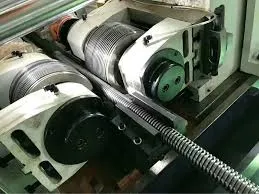
-
 Afrikaans
Afrikaans -
 Albanian
Albanian -
 Amharic
Amharic -
 Arabic
Arabic -
 Armenian
Armenian -
 Azerbaijani
Azerbaijani -
 Basque
Basque -
 Belarusian
Belarusian -
 Bengali
Bengali -
 Bosnian
Bosnian -
 Bulgarian
Bulgarian -
 Catalan
Catalan -
 Cebuano
Cebuano -
 Corsican
Corsican -
 Croatian
Croatian -
 Czech
Czech -
 Danish
Danish -
 Dutch
Dutch -
 English
English -
 Esperanto
Esperanto -
 Estonian
Estonian -
 Finnish
Finnish -
 French
French -
 Frisian
Frisian -
 Galician
Galician -
 Georgian
Georgian -
 German
German -
 Greek
Greek -
 Gujarati
Gujarati -
 Haitian Creole
Haitian Creole -
 hausa
hausa -
 hawaiian
hawaiian -
 Hebrew
Hebrew -
 Hindi
Hindi -
 Miao
Miao -
 Hungarian
Hungarian -
 Icelandic
Icelandic -
 igbo
igbo -
 Indonesian
Indonesian -
 irish
irish -
 Italian
Italian -
 Japanese
Japanese -
 Javanese
Javanese -
 Kannada
Kannada -
 kazakh
kazakh -
 Khmer
Khmer -
 Rwandese
Rwandese -
 Korean
Korean -
 Kurdish
Kurdish -
 Kyrgyz
Kyrgyz -
 Lao
Lao -
 Latin
Latin -
 Latvian
Latvian -
 Lithuanian
Lithuanian -
 Luxembourgish
Luxembourgish -
 Macedonian
Macedonian -
 Malgashi
Malgashi -
 Malay
Malay -
 Malayalam
Malayalam -
 Maltese
Maltese -
 Maori
Maori -
 Marathi
Marathi -
 Mongolian
Mongolian -
 Myanmar
Myanmar -
 Nepali
Nepali -
 Norwegian
Norwegian -
 Norwegian
Norwegian -
 Occitan
Occitan -
 Pashto
Pashto -
 Persian
Persian -
 Polish
Polish -
 Portuguese
Portuguese -
 Punjabi
Punjabi -
 Romanian
Romanian -
 Russian
Russian -
 Samoan
Samoan -
 Scottish Gaelic
Scottish Gaelic -
 Serbian
Serbian -
 Sesotho
Sesotho -
 Shona
Shona -
 Sindhi
Sindhi -
 Sinhala
Sinhala -
 Slovak
Slovak -
 Slovenian
Slovenian -
 Somali
Somali -
 Spanish
Spanish -
 Sundanese
Sundanese -
 Swahili
Swahili -
 Swedish
Swedish -
 Tagalog
Tagalog -
 Tajik
Tajik -
 Tamil
Tamil -
 Tatar
Tatar -
 Telugu
Telugu -
 Thai
Thai -
 Turkish
Turkish -
 Turkmen
Turkmen -
 Ukrainian
Ukrainian -
 Urdu
Urdu -
 Uighur
Uighur -
 Uzbek
Uzbek -
 Vietnamese
Vietnamese -
 Welsh
Welsh -
 Bantu
Bantu -
 Yiddish
Yiddish -
 Yoruba
Yoruba -
 Zulu
Zulu
Exploring the Benefits and Features of Hydraulic Threading Machines for Enhanced Efficiency and Precision
Understanding Hydraulic Threading Machines A Comprehensive Overview
Hydraulic threading machines play a crucial role in various industrial applications, particularly in the fields of plumbing, construction, and manufacturing. These machines are designed to create precise threads on pipes and rods, which are essential for ensuring secure connections and fittings. As industries evolve, the demand for efficient, reliable, and precise threading solutions continues to rise, leading to advancements in hydraulic threading technology.
What is a Hydraulic Threading Machine?
A hydraulic threading machine utilizes hydraulic power to drive a threading tool, allowing for the creation of threads on various materials such as steel, copper, or plastic. These machines come in various sizes and designs, tailored to meet specific threading requirements. Typically equipped with a motor, a hydraulic pump, and a threading die, they can operate at high pressures to ensure clean and accurate thread formation.
Key Features and Benefits
1. Precision and Accuracy One of the primary advantages of hydraulic threading machines is their ability to produce highly accurate threads. This precision is vital in applications where the integrity of the connection can affect the overall performance of a system.
2. Efficiency Hydraulic machines are designed for high-speed operations, significantly reducing the time required to create threads compared to manual methods. This efficiency translates to increased productivity on job sites.
3. Ease of Use Many modern hydraulic threading machines come with user-friendly controls and features such as automatic threading and reversal mechanisms. This makes it easier for operators, reducing the risk of errors and improving overall workflow.
4. Versatility Hydraulic threading machines can handle a wide range of pipe sizes and materials. This versatility makes them suitable for various applications, from small-scale plumbing work to large-scale industrial projects.
hydraulic threading machine quotes

5. Durability Constructed from robust materials and designed to withstand rigorous use, hydraulic threading machines offer long service life and reliability. This durability is particularly important in demanding environments.
Applications
Hydraulic threading machines find applications in several industries. In plumbing, they are commonly used to thread pipes for water supply systems, ensuring effective, leak-proof joints. In construction, these machines are vital for creating threads on rods and rebar, which are essential components of structural frameworks. Moreover, in manufacturing, hydraulic threading machines contribute to the production of various components used in machinery and equipment.
Market Trends and Innovations
As technology advances, manufacturers are continuously innovating to improve the performance and functionality of hydraulic threading machines. Current trends include the integration of digital controls, enhanced safety features, and energy-efficient hydraulic systems. These innovations not only enhance productivity but also contribute to sustainability efforts by reducing power consumption.
Choosing the Right Machine
When selecting a hydraulic threading machine, it's essential to consider factors such as the size and type of materials being threaded, the required thread specifications, and the machine's overall capabilities. Businesses should assess their specific needs and consult with manufacturers or suppliers to find the best solution for their applications.
Conclusion
Hydraulic threading machines are invaluable tools in modern industry, providing the precision and efficiency needed to create secure connections in various applications. With ongoing advancements in technology, these machines continue to evolve, offering enhanced performance and capabilities. As the demand for reliable threading solutions grows, investing in a high-quality hydraulic threading machine can lead to increased productivity and improved operational outcomes for businesses in diverse sectors.
